Being born and growing up in Ibuga refugee camp in Western Uganda, I had never felt the sweetness of my home country nor even what it looked like. As a young girl, I thought the camp was my country, only to learn that it was not. Rather, when I was 8 years old, I learned that South Sudan, a country swallowed by an aimless civil war and severe famine, is my home. Then, like any refugee, I hoped of one day seeing my homeland, however dangerous it may be.
As we acknowledge World Refugee Day on June 20, I call upon my fellow Africans hosting refugees across Africa to treat us as fellow brothers and sisters, as it was not our wish to go to exile to live a refugee life. To the international community, I call for urgent economic empowerment of refugees, especially women and girls, who are the most vulnerable as well as the bread winners of most families in the camps. I hope my story can not only more fully expose the immense struggles facing refugees around the world, but also highlight the unique challenges facing girls and women as well as how determined and resilient girls can rise to their potential against all odds and become successful.
Until I was 22, I lived my entire life in the refugee camp, a tough location made even more difficult by being a girl. Though we received food from UNHCR, the United Nations refugee agency, as a girl, I faced the daily struggle of covering kilometers in search of water and firewood to prepare a day’s meal. During this search, I was exposed to dangers of snake bites and rape on my way to the streams. Having the opportunity and water to bathe was a rarity, a problem made worse each month during my menstrual period, when I would spend several days using rags as my pads.
Going to school was a nightmare due to harsh conditions: Stones were our chairs, fried/boiled maize grains and wild fruits were my only meals at school, and even wearing sandals was a daydream.
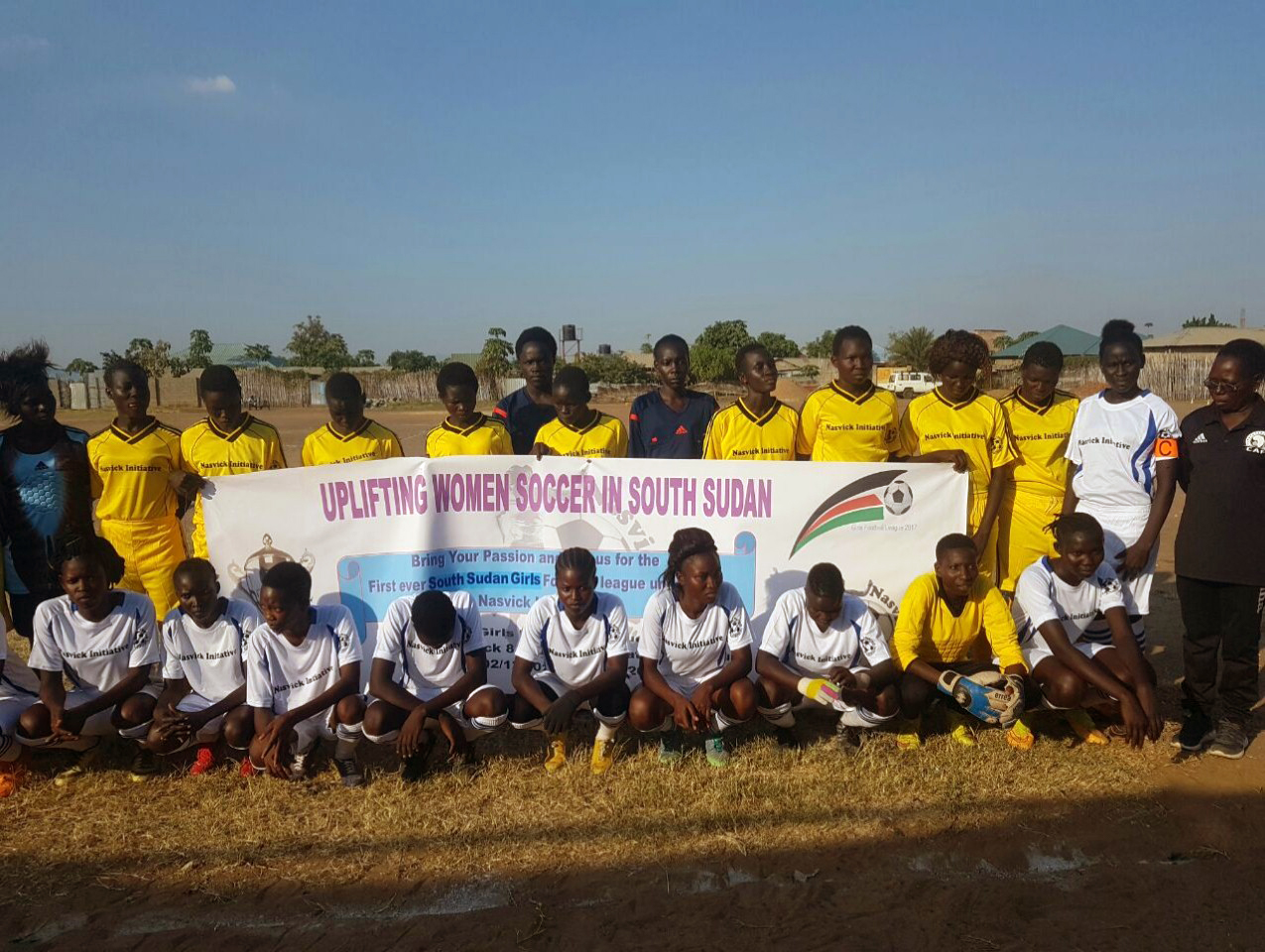
However, my desire for an education, instilled in me by my mother, overruled these pains. Due to cultural norms that do not allow girls to go to school, coupled with the severe poverty in the camp where marriage is seen as a source of family income, my mother was denied an education in order to enable her brothers to have one. She ended up growing up in pain due to her denied access to education, and so pushed me to grasp every opportunity I could get my hands on.
It was these hardships and my mother’s inspiration that inspired me to help girls and women in South Sudan. Out of the 30 girls with whom I started pre-primary education, only three of us made it to university. Many of the girls faced challenges like early childhood marriage, a source of family income. It was heartbreaking to watch my classmates encounter such devastating roadblocks.
On my own personal journey, I found strength in the words of Nelson Mandela: “Everyone can rise above their circumstances and achieve success if they are determined to and passionate about what they do.” My education from Uganda Christian University was obtained through my hard work and determination to defy all the odds in the refugee camp. The support from my parents, from the sale of our meager food aid, as well as access to sporting school activities that earned me bursaries, enabled me to go to university and become one of the few educated and empowered young girls from the camp.
After completing my university education in 2015, I decided to return to South Sudan to begin a new life. Unfortunately, before long, another civil war broke out—but this time I stayed to escape the misery and insults of a foreign land and to instead suffer in my motherland, no matter what the situation. I still hope and long that peace returns to my country.
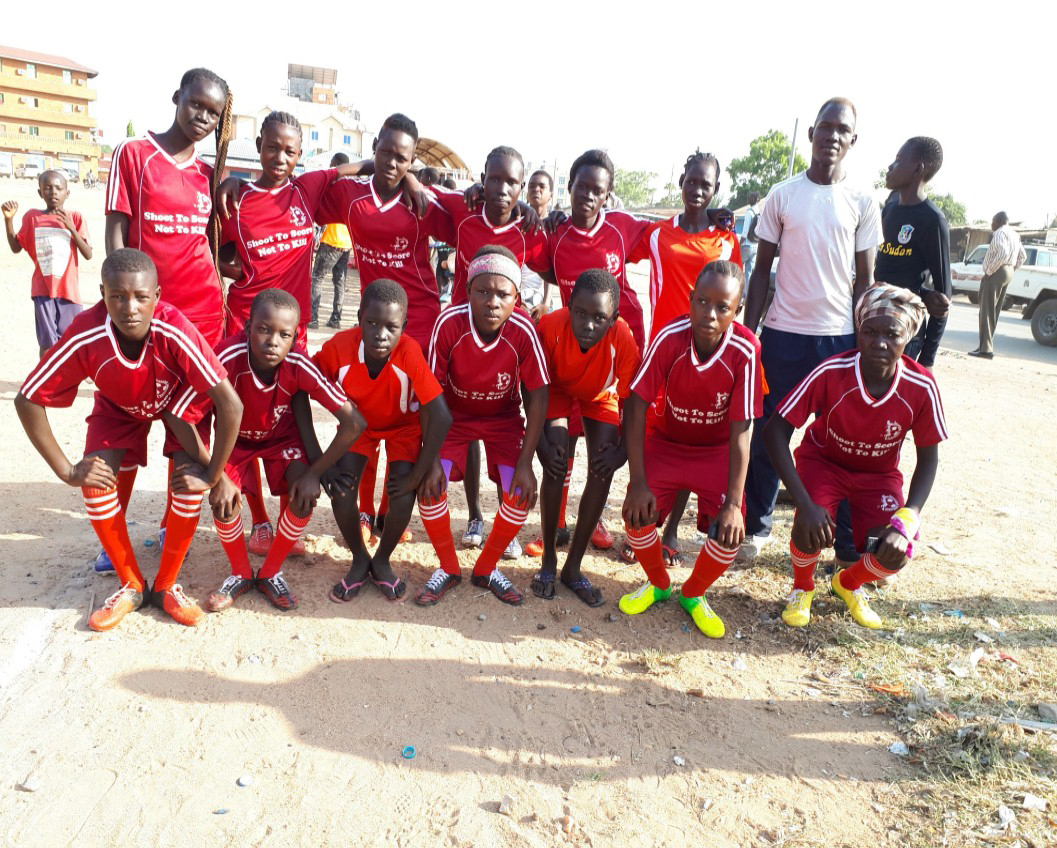
Having spent my entire life as a refugee in a foreign country and seeing the abuse that young girls face in the refugee camps and in other communities, I decided to use my life to empower and give hope to the young girls in South Sudan. In November 2017, I created the Nasvick Initiative, with the primary objective to promote women’s football (soccer) as a tool to bring many girls and women together during trainings and games, where they can share their experiences and life stories as well as explore available opportunities to promote their education. The initiative also uses women’s football as a platform to promote peace and reconciliation during the recovery period from the civil war, with the theme “shoot to score not to kill.” We currently work with 450 girls on 15 teams in Juba.
Though my life has been filled with struggles, I have learned that, against all circumstances and obstacles, one can transform the pain experienced in the past into success in the present.
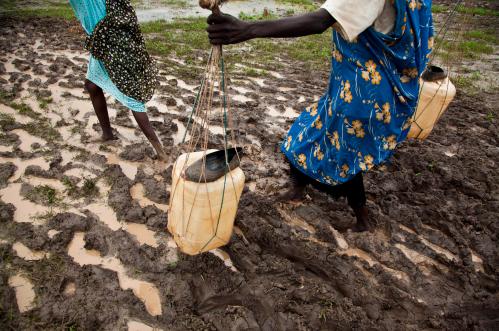
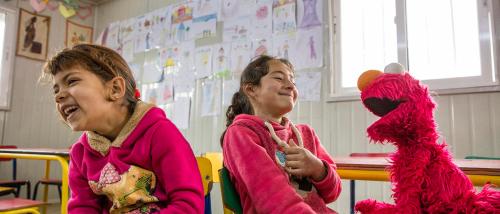
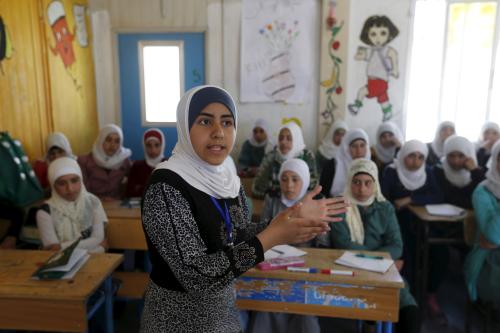
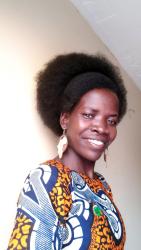


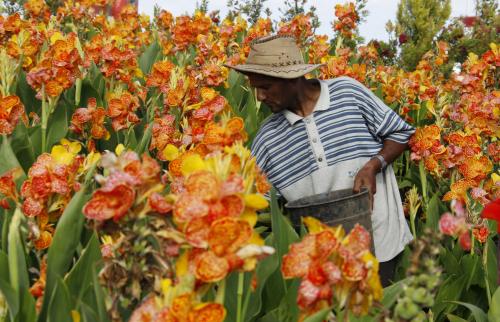
Commentary
My rise as a refugee girl: Why I’m giving back to girls in South Sudan
June 19, 2019